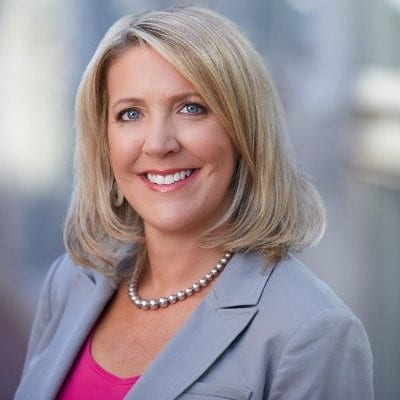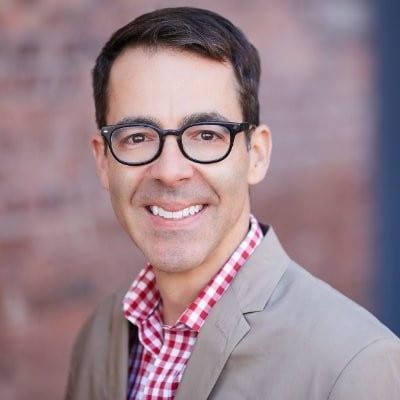Human resource professionals are at the very vortex of the Covid-19 crisis. So we asked three of our master’s program instructors, who are also HR leaders, to participate in a panel discussion to share their observations with our community of students and faculty: Bonnie Bystrek, SPHR, Chief People Officer, Virtual Inc.; Susannah Robinson, SPHR, Chief Human Resources Officer, YMCA of the North Shore; and Tom Penque, Chief Talent Officer, Definitive Healthcare.
Assessing the impact on three organizations

Bonnie Bystrek, SPHR, Chief People Officer, Virtual Inc.
Bonnie Bystrek: My company is a professional services firm that hosts scores of global conferences every year. So the pandemic forced us to pivot our events online almost overnight. Fortunately, one of our corporate values is flexibility – and that value was certainly put to the test in this situation! Most of our employees already work remotely, but we had one office where employees had about four days to figure out how to work from home.
Susannah Robinson: Shifting work and workers online was not really an option for the Y. We operate childcare centers, summer camps, and other services that depend on face-to-face interaction. Our mission, after all, is to build a sense of community. The lock down in response to the crisis resulted in a drastic drop in revenue and the need to lay off hundreds of employees.
Tom Penque: As a healthcare data and analytics company, our business model enabled us to adapt more easily than many other organizations to the current environment. We were able to move our entire workforce online in a matter of hours. Since the beginning of the lock down, we’ve managed all our HR functions virtually, from recruitment and onboarding to town hall meetings.
Sustaining employee morale and engagement

Tom Penque, Chief Talent Officer, Definitive Healthcare
Tom Penque: We conducted a survey at the end of March to benchmark employee sentiment. How are we sustaining employee engagement over time? We over communicate – our CEO sends daily messages to employees. We try to be as transparent as possible about how things are going. We celebrate the wins and how well people are adapting. A major role of HR is to help managers understand that people respond to stresses in different ways and to respond accordingly.
Susannah Robinson: A priority for us is to stay in touch with our furloughed – we send out weekly newsletters and hold virtual town hall meetings. Since Y’s are not used to working remotely, we check in with our staff to make sure they are doing okay.
Bonnie Bystrek: Like Tom, we’ve used survey to learn how employees are responding to our new normal – and we’re seeing that overall engagement is at an all-time high. Every department has brief daily huddle to see how folks are doing – we use Zoom polls and ask how are you doing on a 1-5 scale. That’s given us the language to learn where people are at and how we can work together to remove obstacles. Striking a balance between family, work, and other responsibilities is critical. In the office I mentioned earlier, attitudes toward remote work have changed dramatically in a positive way.
The skills that have proven most critical

Susannah Robinson, SPHR, Chief Human Resources Officer, YMCA of the North Shore
Susannah Robinson: We’re balancing two things: How to effectively address the current situation and, at the same time, prepare for the future. We expect the rebuilding process to take at least 18 to 24 months. A key skill in this situation is learning how to live with a high level of uncertainty. This has been especially challenging for our employees who are early in their careers. As leaders, it’s vital to be clear, transparent, and decisive. Indecisiveness feeds uncertainty. You have to provide people with something to hold onto and keep moving.
Tom Penque: Being proactive, thinking ahead, those are key skills. And you have to recognize that in this situation, everything is gray, there is no black and white. You have to act even with incomplete information and no play book.
Bonnie Bystrek: I agree with Susannah and Tom: You need a flexible mindset. What works one day may not work the next. People need to share resources and take on new tasks. I’ve found that reaching out to my HR network has helped me learn how others are instilling a flexible mindset in their workforces.
Gazing into the ‘next normal’ crystal ball
Bonnie Bystrek: The pandemic has shown us that technology platforms enable employees to connect with each other and customers without sacrificing productivity. I expect the office footprint to shrink for many organizations as many employees continue to work at home. But can the productivity level be sustained?
Tom Penque: I have the same concern. I’m now seeing some signs of fatigue. And for that reason, we’ve instituted Zoom-free Fridays. Working at home works for some employees, but not for others. But I don’t think we’re going back to the status quo. Remote work is where many organizations are moving. After all, if people can do their job and stay productive and engaged, that’s a win/win.
Susannah Robinson: We’re going to see a range of new normal. For some organizations, like the Y, working remotely for some employees is simply not an option. The life guards, after all, have to be on site. But other functional areas will be able to operate in ways that we might not have envisioned prior to the pandemic.
Final thoughts
The perspectives of our three panelists mirror on a local level what HR leaders worldwide have been saying in virtual conversations organized by Egon Zehnder, the global organizational development firm. “There was a clear consensus that some aspects of working have changed for good. There will be new operating models, and some reshaping in the organization. Most significantly, digitalization has increased rapidly over the recent weeks and many organizations are seeing the dogmas of the past around flexible or remote methods of working evaporate.”
Charting the way to the next normal may well take months and years, but one thing is a certainty: HR professionals will have to step up as key business partners in the process.
Posted by Carl Zangerl, Faculty